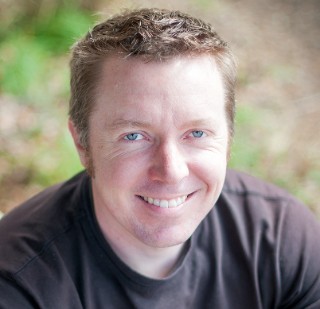I am a white man. I live in a black neighborhood, and I love it dearly. I talk and write constantly, obsessively even, about all the beauty and joy of my block in Charlotte’s Enderly Park neighborhood. This place and its people have been my salvation. Still, white people – nice, decent, sentimental, clueless white people – pull my wife and me aside and ask, quietly, “Why do you raise your kids there? Shouldn’t you get them into different schools?”

They know, because I have said it out loud, that this place is not always joyful. No place is. My heart has been broken more than a few times. Their questions show that they think, from their perches of privilege, that they have bent the world into their control, that they have insulated themselves from heartbreak. They think they are being loving and welcoming, that their lives are exemplary for the raising of well-adjusted, productive children.
“We will not give in to the privilege of despair; we will practice a defiant hope.”
“Wouldn’t it be safer and easier to move out to the suburbs?” they ask.
Well, I doubt it. Maybe it would be; who knows. Regardless, I am not going to, and here is why:
Because, dear white people, whoever told you that your only responsibility is to your own children lied to you. You cannot be free until you stop believing that lie. And when you stop believing the lie, you are committed to acting on the truth, in whatever place you find yourself.
Because if you are not willing to let your children experience some suffering, then you don’t believe in Jesus the Christ, just Jesus the Nice Guy.
Because it is absolute madness to be well-adjusted to American society.
Because you have never asked a wealthy person why they raise their children in gated, segregated, oppressive communities, outsourcing their violence to policies and then claiming innocence.
Because I will not look away from the damage inflicted by white supremacy. I will not make it easier for myself or anyone else to pretend that the cost of our society’s metastatic cancer of racism is not real. It is real, it is unfathomably costly and its cost is paid primarily by black, indigenous and people of color who cannot just escape to suburban idylls.
Because my children and I cannot be whole by ignoring the way white supremacy has scarred our sin-sick souls. The damage is real to my neighbors, but it is to us as well, though in different ways. One of the ways white supremacy damages my family is by convincing us that we should be able to sleep better by moving to a place where we can pretend the hard things in the world don’t affect us. I suppose we might not toss and turn so much in another place, but at what cost to our souls?
“Our people – white people – made the disaster called white supremacy. We dare not run off and leave our mess behind.”
Because disregarding your neighbor is anti-social behavior. Years of anti-social behavior have earned us our very own Nero, plus a white evangelical culture that not only supports him, but dances to his fiddle music while our society collapses.
Because in my neighborhood, people build paths from place to place to make it easier to get to one another. Here we practice a spirituality of city-building; if we need a street, we walk it into existence so that we can get to one another more easily. We don’t fence each other out, or build front garages instead of front porches. We walk. We bump into each other. We do it because we have to in order to stay alive (and because there is no HOA to tell us not to).
Because we will be active in God’s creation and in our own lives. We will build a just and beautiful world founded on the truth that we belong to one another.
Because our people – white people – made the disaster called white supremacy. We dare not run off and leave our mess behind. We broke the world, so we need to take a strong role in fixing it. This is what decent parents teach their kids to call “responsibility.”
None of us can do everything. But we cannot allow the fact that we cannot do everything constrain us from doing something. We can claim our responsibility for what we can do, and we can do it, in full knowledge that it will not be everything. This is what I hope our children will know and value in this place in which we find ourselves – namely, that we will not give in to the privilege of despair; we will practice a defiant hope.
